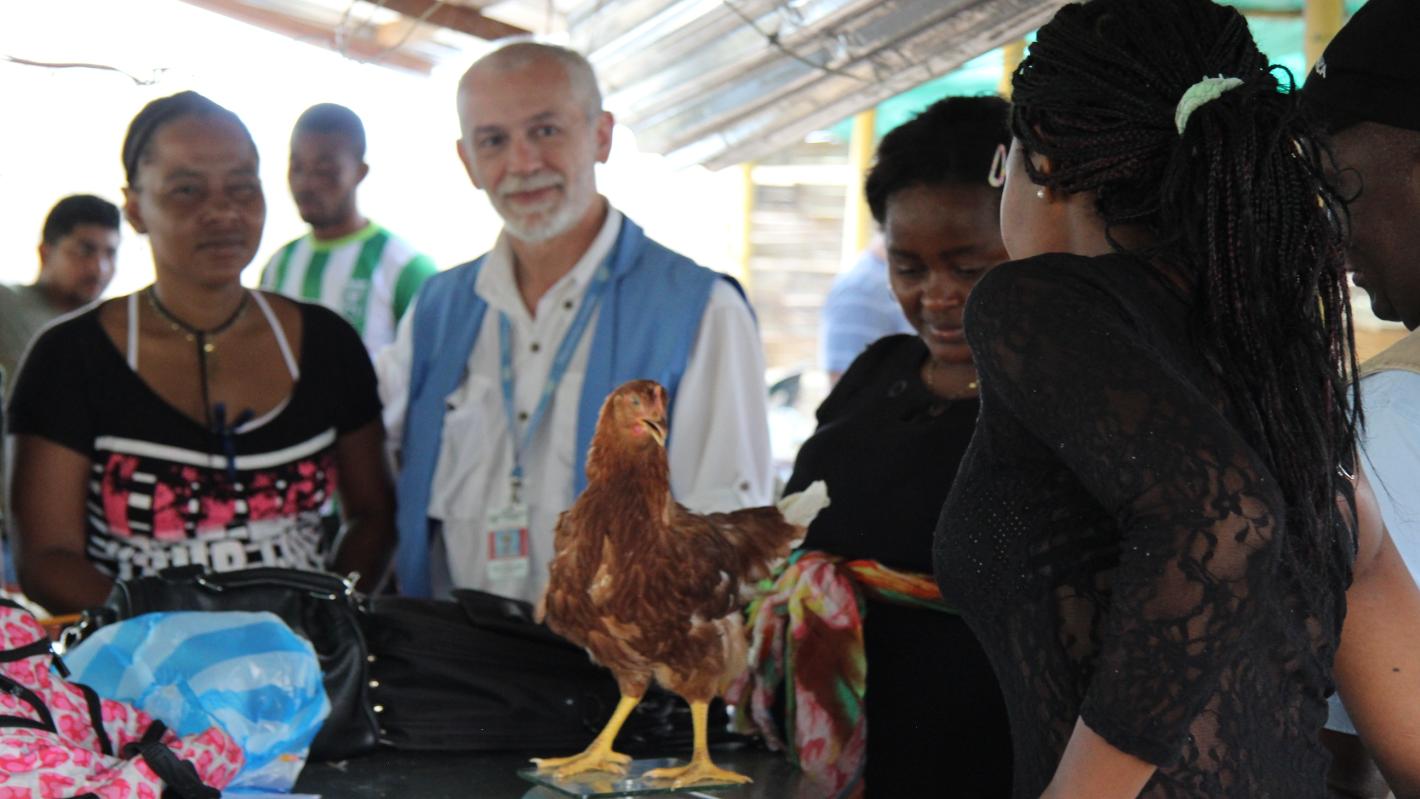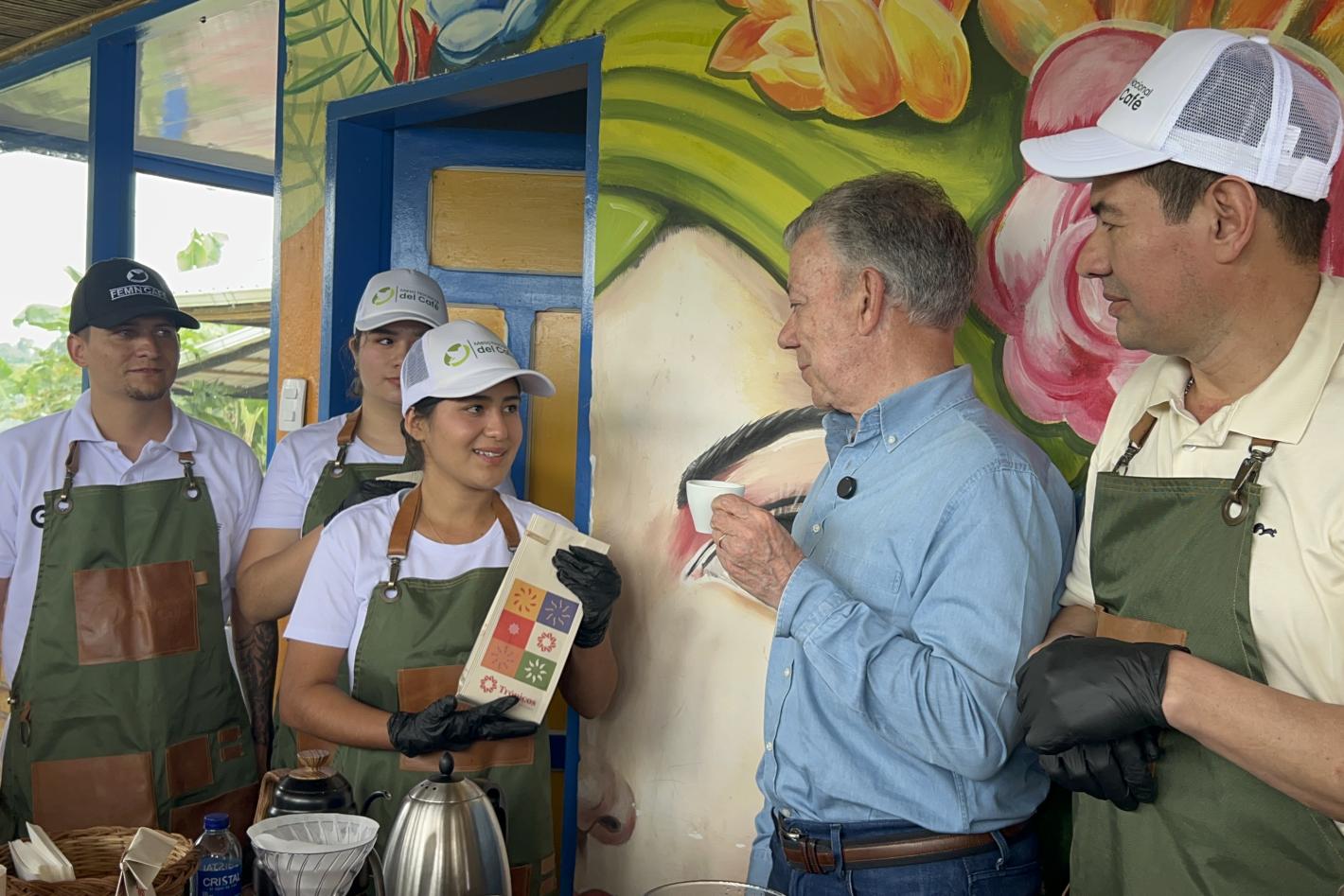It's a scorching sun and almost no wind in here. The grass and mountains are very dry due to the heat and lack of water. Climbing up a steep path you see a rustic wooden classroom, and, in the background, several shelters made of plastic, connected by ropes on which hang the freshly washed clothes of those who still resist in this place.
Upon arrival, the obligatory stop is in the improvised house of Vicky, a woman in her fifties, beaten up by life, but with a smile and kindness typical of those who offer with their hearts what little they have. She always greets visitors with coffee or lemonade and is always busy. She finishes cooking at an improvised table and goes to wash herself taking advantage of the fact that some water has arrived again, which is pumped from the community aqueduct.
In the wooden classroom there is a meeting in which decisions are made about the actions that will be taken to continue insisting on the need to accelerate the adequacy of housing. It also reviews the status of productive projects that are being managed and seeks solutions to water shortages.

Those who reside in the Territorial Area for Training and Reintegration - TATR of El Estrecho, located in the local community of La Barca in Patía municipality, department of Cauca, persist in the middle of adversity. They do not want to return to war. Once they have laid down their arms, the decision to return is not an alternative. Several of them have fulfilled the dream of forming a family and for that reason about 15 minors are now part of their community. A group of 25 ex-combatants stick to the productive projects they are undertaking with the support of the UN Verification Mission in Colombia, the United Nations Development Programme (UNDP), the National Service for Learning (SENA by its Spanish acronym) and the Agency for Reincorporation and Normalization (ARN by its Spanish acronym).
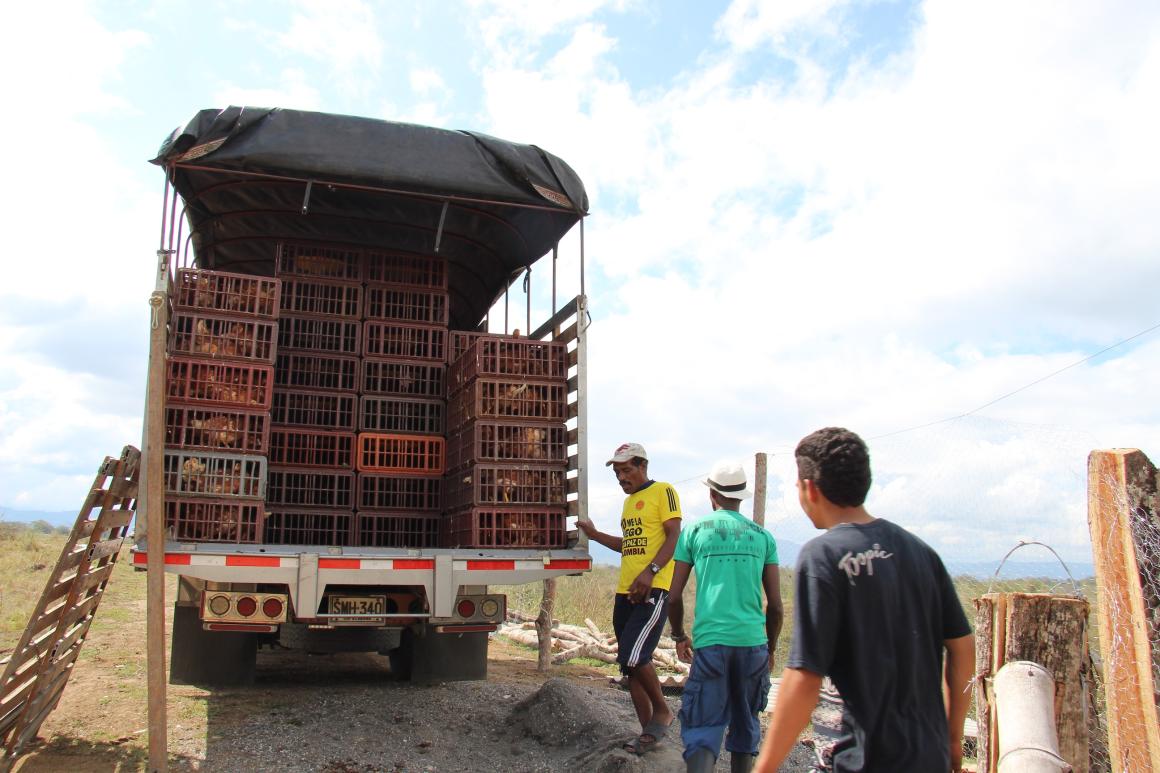
In recent months, they have divided their time between the classes they receive from SENA to learn how to care the hens, work on the construction of the storage cellar and the adequacy of the sheds for the animals. Finally, it was the time to receive the chickens and to put in practice the instructions given by SENA teacher, the tasks are divided: some are going to unload the truck, others to weigh the animals and others to count the 918 laying hens, with which they hope to obtain income from the sale of eggs.
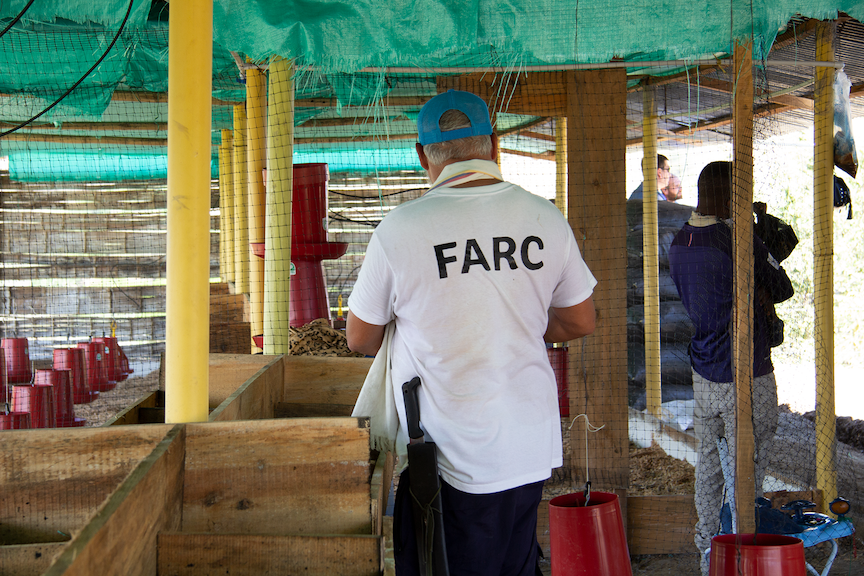
Thinking about the future, they built a winery that can be adapted as a storage center, because the idea is to have an organized business and they are already exploring markets in the nearby villages. In addition to the hens, they received the materials to build the warehouse and adapt the sheds, food for the animals, weights, netting to organize the grazing area, cardboard boxes to store eggs for sale and a chicken peeler to also market their meat. With the accompaniment and training of SENA instructor, they work to manage the animals properly, keep clear accounts, manage expenses and profits, and obtain the best possible profitability.
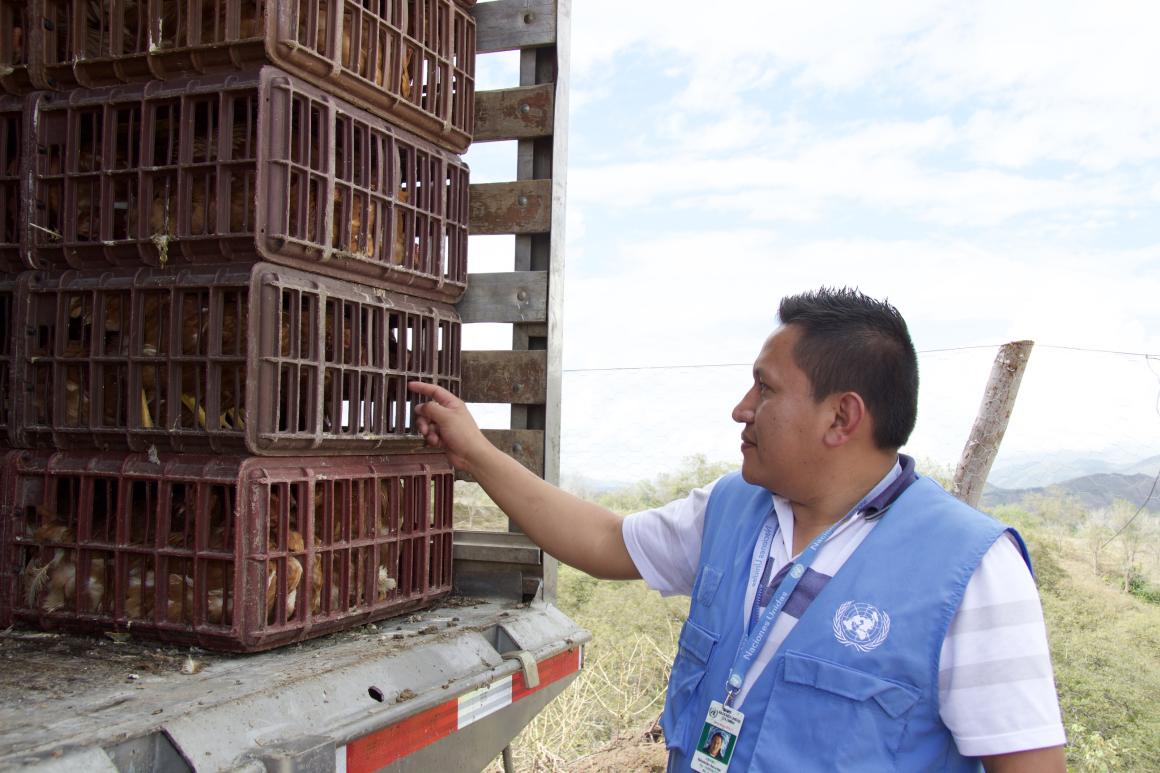
"Things don't fall from the sky, you have to work on them," says Ramón, one of the members of the cooperative they formed to develop the project. "Last night the wind took away part of the roof of the storage room, so we have to fix it quickly to preserve the working supplies” he points out.
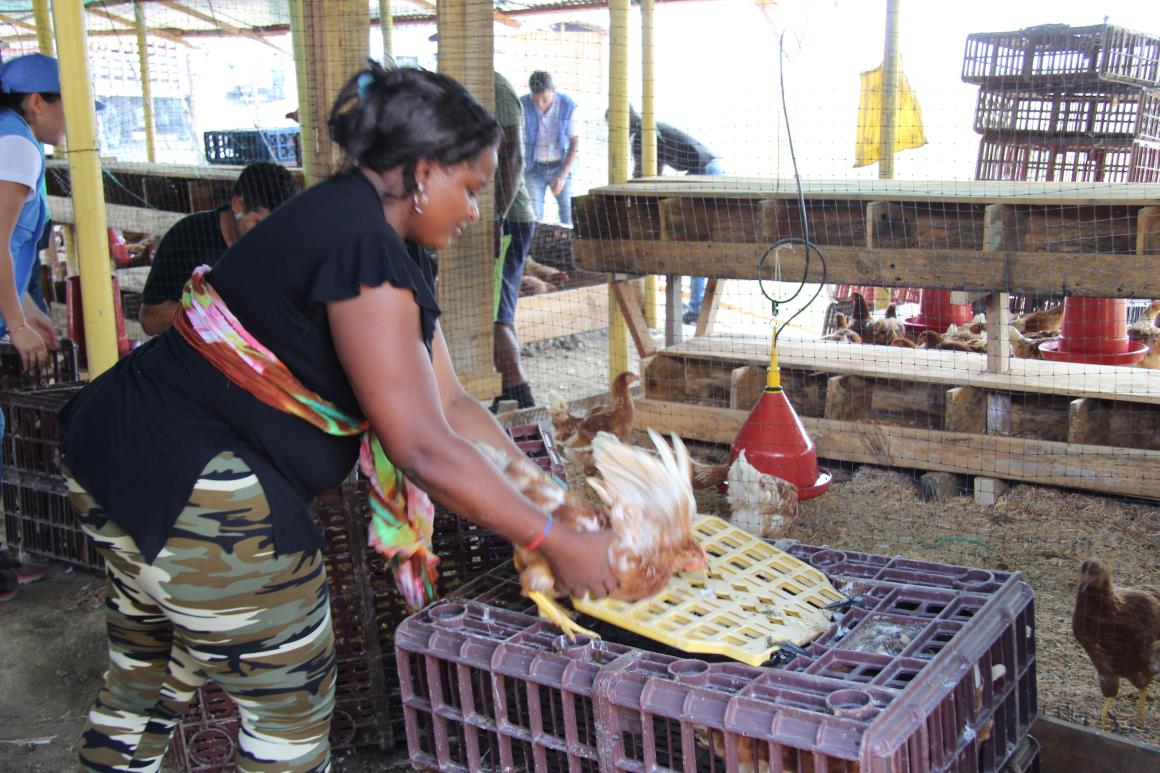
Things aren't easy in here. Many of the members of the group have moved out to live in the nearby community, because the heat and lack of water in the TATR make it difficult living there. However, whenever required, they meet to receive training, work in the warehouse and now with the arrival of the hens come days of much work.
They are the proof that there is a real will to return to productive life on the part of those who once fought from the clandestinely. They are enthusiastic about the new task and continue to persist.
They already think of the name they will give to the business. "The eggs for hope" sound like the winning name, finally, every day they work not to lose the hope that took them out of the war and has kept them firm until now.
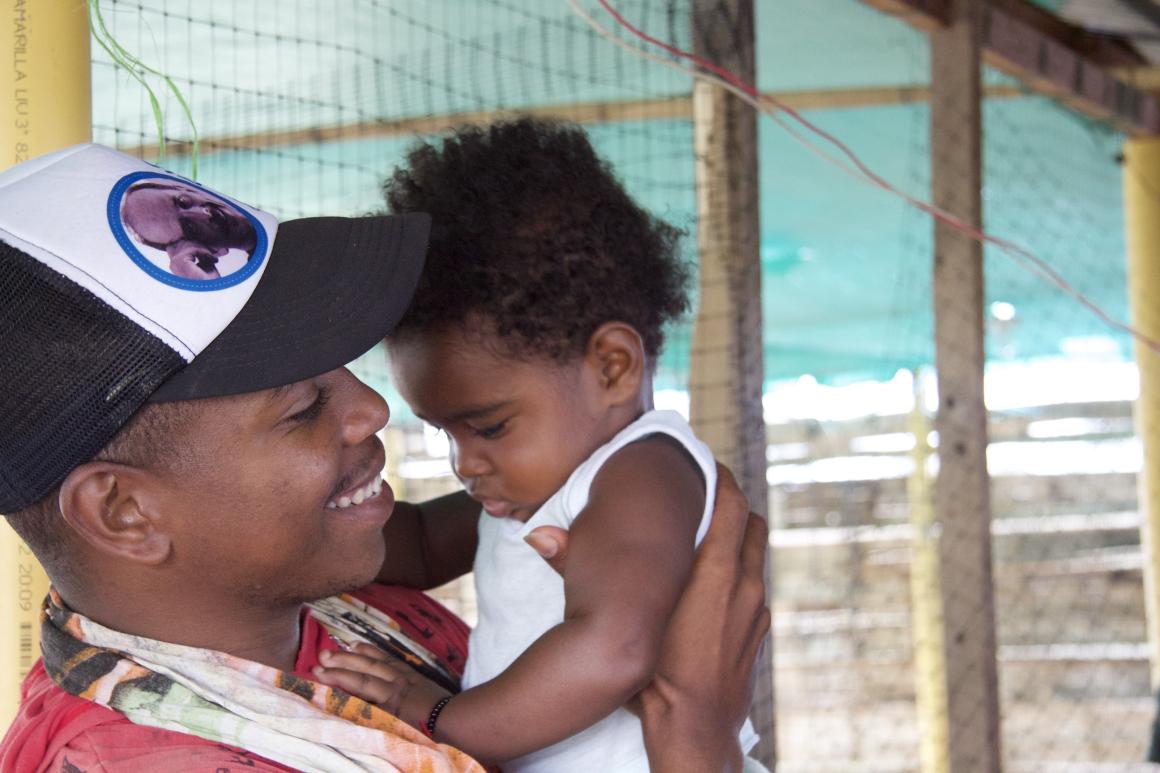
By: Nadya Andrea González Alarcón, Public Information Officer. Regional Pasto.
UN Verification Mission in Colombia


